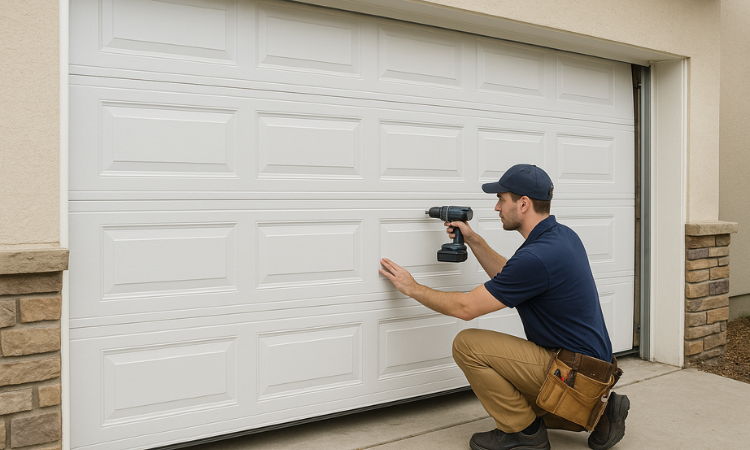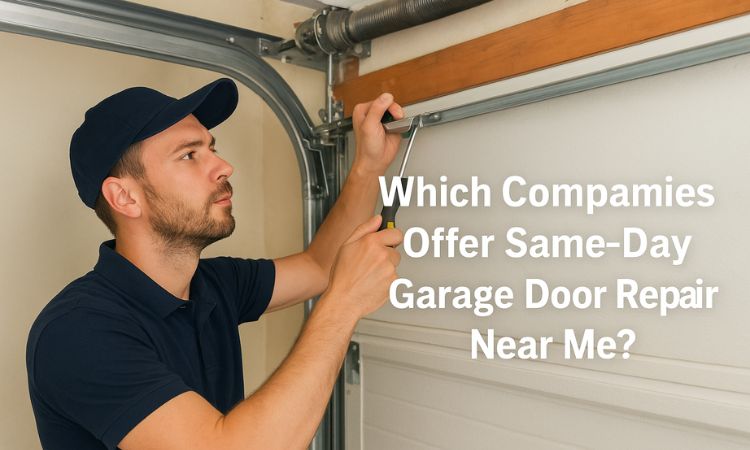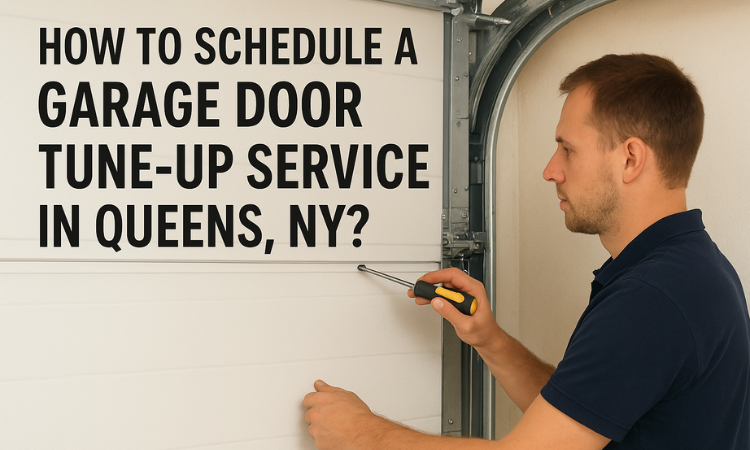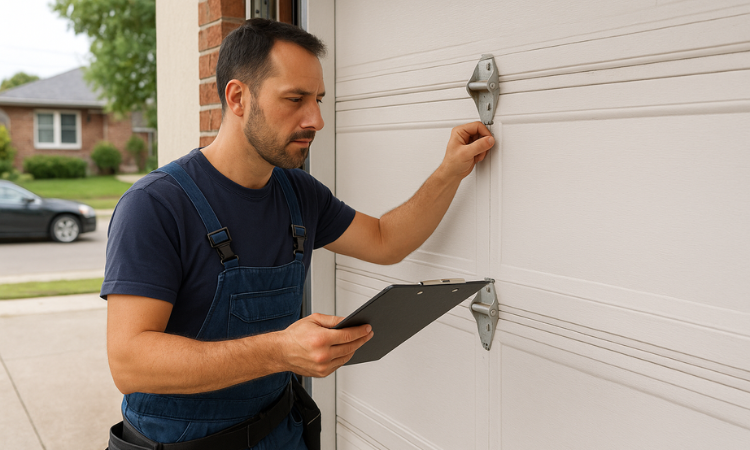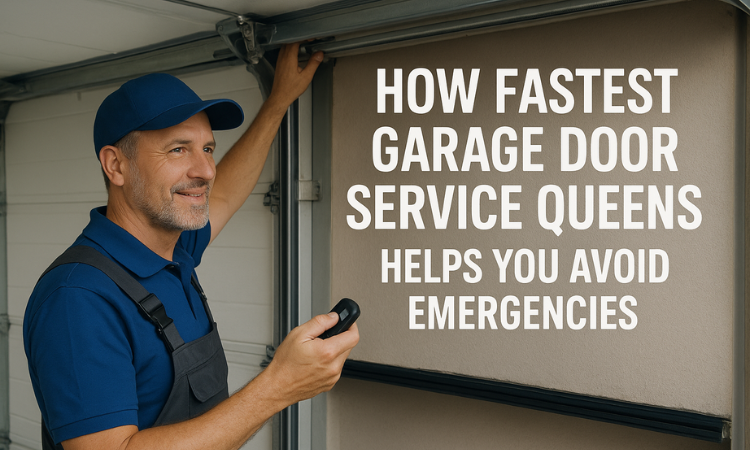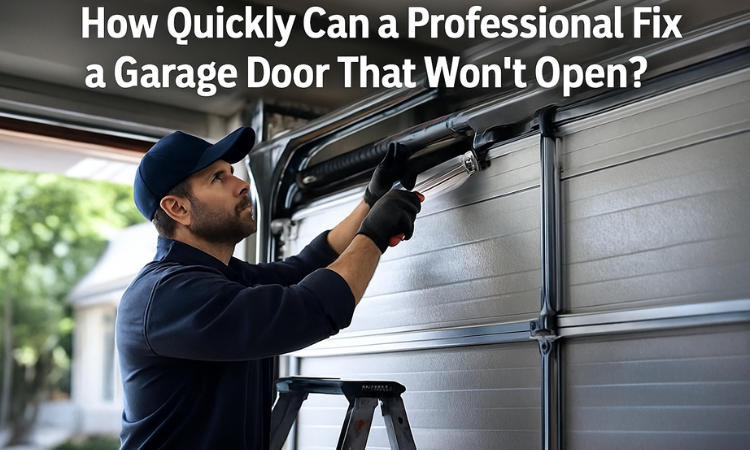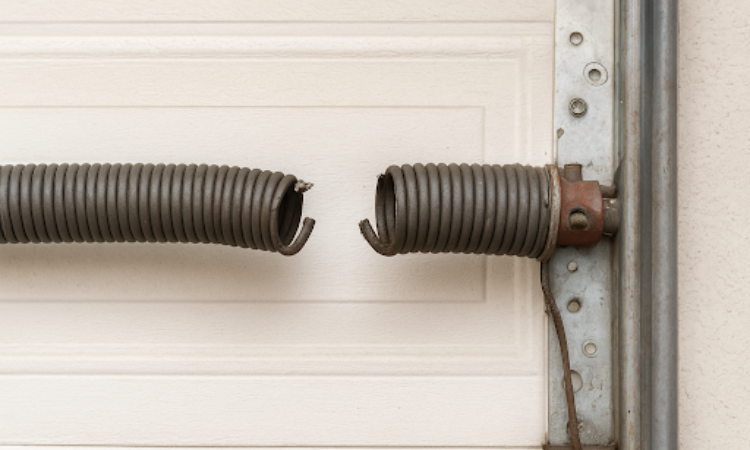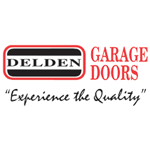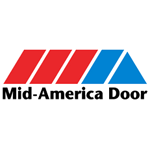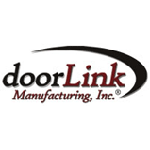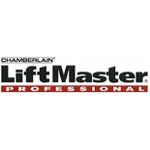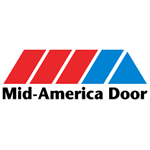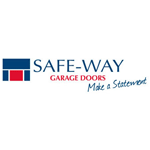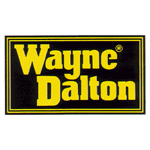Finding the cheapest garage door repair Queens homeowners can trust is not always easy, especially when so many companies charge high service fees or push unnecessary part replacements. But affordable doesn’t have to mean low-quality. With the right local garage door pros, you can get affordable garage door repair Queens that’s reliable, safe, and long-lasting without draining your budget. In this comprehensive guide, you’ll discover cost-saving repair options, early warning signs, and insider tips to avoid overpriced services.
Affordable Garage Door Repair in Queens Doesn’t Have to Mean Low Quality
Many homeowners fear that low-cost repairs mean cheap materials or inexperienced technicians, but that’s simply not true. In a competitive borough like Queens, local companies offer affordable garage door fix because they understand that customers want honesty, clarity, and value. Well-trained garage door pros can deliver high-quality repairs at a fair price without cutting corners. The key is choosing a service that prioritizes both affordability and customer care, ensuring your repair lasts for years.
- Cost-Efficiency Comes From Skill, Not Shortcuts: Experienced technicians work quickly and efficiently, reducing labor costs.
- Affordable Pricing Doesn’t Equal Weak Materials: Budget-friendly companies still use strong, durable, manufacturer-grade parts, including quality torsion spring systems.
- Local Companies Reduce Extra Charges: By avoiding franchise fees and corporate markups, local services stay affordable.
Why Garage Door Repair Costs Are Higher in Queens
Queens is known for higher garage door service costs due to the cost of living, demand for repairs, and the complexity of navigating busy neighborhoods. Many homeowners are surprised when they hear high quotes, but understanding what influences pricing can help you avoid being overcharged. The more aware you are of standard cost factors, the easier it becomes to identify fair rates from inflated ones.
- Labor Costs Can Influence Final Pricing: Technicians in Queens must account for travel time, parking challenges, and urban congestion.
- Some Companies Inflate Emergency Fees: High-pressure “same-day repair fees” are common but not always justified.
- Brand-Name Parts Increase Costs: Premium part brands can raise prices, even when more affordable alternatives work just as well, including garage door opener models.
The Cheapest Garage Door Repairs in Queens (With Practical Price Expectations)
Not all garage door fix are expensive; many are quick, simple, and surprisingly affordable. Knowing which issues cost the least helps homeowners stay calm and avoid being overcharged. Below are the most common affordable garage door fix Queens services, along with brief explanations to guide your expectations.
- Spring Replacement: This is one of the most frequent repairs. While some companies overprice spring jobs, affordable services offer fair rates using high-grade garage door springs that last longer, including durable torsion spring systems.
- Cable Repair: Frayed or loose cables can be fixed quickly, and addressing the issue early prevents damage to other parts, keeping costs minimal.
- Off Track Garage Doors Adjustment or Alignment: Misaligned or bent tracks often require adjustments rather than full replacements, making this one of the cheapest garage door cost options available.
- Sensor Cleaning or Realignment: Many “garage door broken” issues simply have dirty or misaligned sensors—an extremely low-cost fix that takes minutes.
- Roller Replacement: Replacing just a few worn rollers can significantly improve movement and reduce noise without requiring major parts.
- Routine Tune-Ups: Lubrication, bolt tightening, and minor adjustments keep the system running smoothly and save you from expensive future repairs.
Signs You Need Immediate Repair (Before Costs Increase)
Identifying problems early is the best way to ensure repairs stay affordable. The longer you wait, the more damage the system can suffer, ultimately leading to costly part replacements or even garage door replacement. Knowing these early warning signs helps keep repair bills small and manageable.
- Grinding or Screeching Noises: This typically means worn rollers or dry components, which are inexpensive fixes if caught early.
- Uneven Door Movement: A crooked door suggests cable or broken springs issues; delaying the repair can lead to a full system shutdown.
- Door Stops Midway: Often caused by obstructions or opener garage door issues, this is usually an affordable and fast repair.
- Remote or Wall Button Fails: Sensor issues or minor wiring problems with your self-operating door opener are typically simple fixes that require minimal cost.
How to Find the Cheapest Garage Door Repair in Queens Without Getting Scammed
Unfortunately, some companies take advantage of homeowners by offering “cheap” service but then adding hidden fees or pushing unnecessary replacements. By knowing what to look for, you can confidently select the right affordable provider.
- Check for Licensing and Insurance: Legitimate garage door pros will openly provide credentials, proving professionalism and safety.
- Ask for Transparent Pricing: Avoid companies that won’t share estimates or charge high diagnostic fees.
- Compare Service Call Charges: Some companies waive diagnostic fees if you proceed with repair—a major cost saver.
- Look for Real Reviews: Authentic customer feedback shows whether the company truly offers affordable service.
- Verify Warranty Details: Even the cheapest garage door repair Queens providers should guarantee workmanship or parts, including opener garage door installations.
Affordable vs Cheap: Why the Difference Matters
Homeowners often confuse “cheap” with “affordable,” but the difference is significant. Choosing the wrong type of service can lead to recurring problems, unsafe repairs, or even more expensive issues later. Understanding this difference protects your home and your budget.
- “Cheap” Means Cutting Corners: Unskilled labor or low-grade parts often result in repeated breakdowns.
- “Affordable” Means Honest Pricing: Fair rates, professional service, and reliable parts create long-lasting value.
- Quality Saves Money Long-Term: Repairing something properly once is better than paying for multiple “cheap” fixes or premature garage door roller replacement.
Why Queens NY Garage Door Repair Services Is One of the Most Affordable Services in Queens
Your business stands out because of its commitment to fair pricing and reliable workmanship. Without using pushy sales tactics, it’s important to highlight what makes you one of the best choices for affordable garage door fix in Queens.
- Low Diagnostic Fees: Many companies charge $100+ for inspections, but your company keeps it budget-friendly.
- No Hidden Charges: Every step of the repair process is explained clearly so customers know what they’re paying for.
- Same-Day Service Without Extra Cost: You offer fast service without adding “rush fees,” saving homeowners significant money.
- Local Technicians Keep Costs Low: Not being part of a franchise allows you to offer the cheapest garage door repair without compromising quality.
- Experienced, Skilled Technicians: Your team of garage door pros fixes issues correctly the first time, reducing unnecessary labor costs.
Real Customer Experiences: Affordable Repairs That Last
Sharing real-life examples builds trust and shows homeowners how your affordable services truly work. These scenarios demonstrate fairness, transparency, and quality—all essential for customer confidence.
- Spring Replacement at 30% Less Than Competitors: A customer in Jackson Heights saved significantly after receiving a fair quote and durable spring hing parts.
- Sensor Adjustment Instead of Opener Replacement: Instead of upselling, your technicians identified a simple sensor issue with the Opener garage door , saving the homeowner hundreds.
- No Emergency Fee for Same-Day Cable Repair: In Astoria, a homeowner received fast, cost-effective service without inflated after-hours charges.
Quick Tips to Reduce Future Garage Door Repair Costs
Smart garage door maintenance can save you hundreds of dollars over the years. These essential tips help prevent major breakdowns and keep your repair needs affordable.
- Lubricate Moving Parts Regularly: Helps prevent friction damage and reduces noise.
- Inspect Sensors Monthly: Dust and slight misalignment are common causes of automatic door opener malfunction—easy and cheap fixes.
- Tighten Loose Hardware: Loose screws and bolts can cause track misalignment over time.
- Avoid DIY Repair on Springs: Broken coils are dangerous and should only be handled by trained professionals.
- Schedule Routine Maintenance Twice a Year: Early detection prevents expensive emergency repairs or premature garage door upgrade.
When Cheap Repairs Become Dangerous: What NOT to Ignore
Some repairs should never be postponed, even if you’re trying to save money. Delaying these issues can result in greater risk, higher costs, and extensive damage to your residential garage door system.
- Broken Spring: Operating the door with broken coils can destroy the opener garage door and cause injury.
- Frayed Cables: These can snap unexpectedly, potentially causing damage or injury.
- Bent Tracks: Ignoring bent tracks can lead to complete derailment of the door.
- Burning Smell from the Opener: Indicates self-operating door opener strain—address it early to avoid costly replacements.
- Visible Damage: A broken garage door panel or severely dented sections should be addressed promptly to prevent further issues.
Affordable, Reliable Garage Door Repair in Queens Is Within Your Reach
Homeowners searching for the cheapest garage door repair Queens option shouldn’t have to sacrifice quality or safety. With trusted local garage door pros, you can receive fast, efficient, and affordable solutions that protect your home and your wallet. Whether it’s a simple sensor fix, opener garage door repair, or even considering garage door installation for severely damaged systems, choosing the right technicians ensures long-lasting results without overspending. For the most affordable garage door fix in Queens, rely on a team that values honesty, skill, and customer satisfaction, especially when dealing with a garage door broken or other urgent issues



